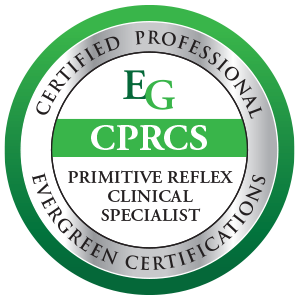Reflex Integration
Reflex Integration
What are reflexes?
Reflexes are automatic responses that occur out of someone’s control in response to an external stimulus or facilitated movement. Reflexes are necessary automatic movements that are essential for survival as a baby and are what helps a baby develop movement.
Each reflex is present and integrated at different parts of development. An example is the rooting reflex, when the baby’s cheek is stroked the baby will turn their head in the direction of the stimulus and open their mouth automatically. This reflex allows the baby to find their mother’s breast and is essential for feeding. This reflex will usually integrate around 4 months of age once the infant starts to develop volitional control and has learned how to respond IND when they smell, feel and see mother’s breast.
Unintegrated Reflexes
Reflexes can become problematic when they are delayed or unintegrated. In the case of the rooting reflex, if it is not present at birth it can impact IND feeding response or if present after feeding can impact speech, eating, and response to facial touching. Common things you might see in your child if this reflex is not integrated include trouble pronouncing words, difficult breaking thumb sucking, messy eatering, or has poor tolerance to kissing or touching their face.
Unintegrated Reflex Red Flags
There are many reflexes and each has a vital role and can have a huge impact on development if delayed or not integrated at the right time. Some of the red flags to look for include
- difficulty or delayed gross motor skills
- difficulty or delayed fine motor skills
- emotional lability
- poor tolerance to new situations
- difficulty with learning/writing
- poor vision
- poor attention
- bed wetting
- difficulty with potty training
- abnormal muscle tone
- poor tolerance to certain movements.
Next Steps
If you have any of these concerns you should try physical and/or occupational therapy to perform movements that are designed to help with reflex integration. In addition, your therapist will be able to work on the functional or emotional skills your child is having difficulty with to improve their IND and participation.

